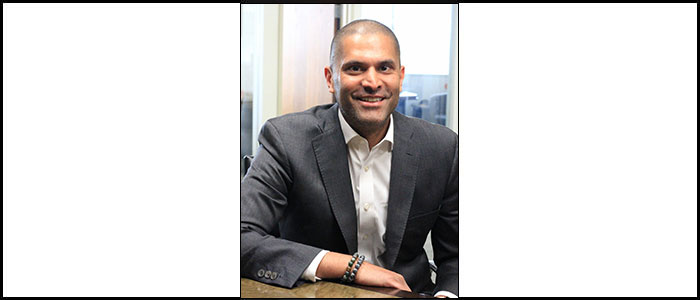
Anti-financial crime (AFC) guru Sanjeev Menon, managing director of Madison Davis’s Legal and Compliance Practice Area, specializes in executive recruitment and provides staffing and workforce solutions to compliance and anti-financial crime (AFC) clients. Menon, who is an ASA Certified Staffing Professional and holds a Society for Human Resource Management-Certified Professional designation, is here to answer your top AFC staffing questions.
Question 1: What hiring trends do you see occurring in the AFC industry this year?
Sanjeev Menon (SM): The employment market in general, in 2022 and 2023 so far, has been confounding to say the least. I could cover this topic in a different article. Although the strange market conditions have affected AFC hiring, here are the highlights:
- The pandemic might be over, but we will see its residual effects for years to come. Fraud increased tremendously after the pandemic started (e.g., check fraud, seriously?). One of the effects has been fraud officially becoming part of anti-money laundering (AML) departments and many AML professionals moving into strictly fraud roles. Fraudsters have had a renaissance over the last few years, and they will continue to take advantage of new financial products, volatility in the financial services industry, and the early stages of a developing financial technology (fintech) space. Fraud roles and fraud projects have been numerous.
- A little enhanced due diligence (EDD), anyone? EDD/know your customer (KYC) professionals are in high demand currently for both full-time roles as well as projects. If you are in EDD currently or looking at that space, this is your time to take advantage of the needs.
- The Office of Foreign Assets Control (OFAC) and sanctions are powerful weapons. Militaries are more potent than ever, but money is always the weakest point. The war in Ukraine, especially, has made OFAC and sanctions compliance more complicated and important to financial services firms and AFC departments.
- Systems and data are revolutionizing the AFC field. Artificial intelligence (AI) and machine learning are the buzzwords du jour. However, implementing and tweaking “regular” transaction monitoring and compliance tools as well as leveraging big and small data have been key initiatives at banks and fintech companies for years. And they continue to be at the forefront of AFC departments’ goals.
Question 2: How do you expect artificial intelligence (AI) will affect human resources (HR)-controlled reviews of applicants and resumes?
SM: To sum it up, AI will play a big role. We want to believe that the hiring process will never be automated, right? Interviewing, hiring and choosing where to work are very personal decisions and aspects of our work culture and society. But guess what? That’s what makes it a perfect fit for AI. I am not advocating for AI or saying it would be good for the hiring process. It’s too early for me to have an opinion. However, I do know that it is inevitable that AI and machine learning tools will play a significant role in the very early stages of applicant review and resume assessment in the near future. Recruiters and HR professionals are currently using simple applicant tracking systems that can easily be souped up to become more robust vetting tools. Proponents would say that AI tools will get rid of inherent human bias. Opponents conjure up scenes from the show Westworld, where people must speak to automated AI in order to find out why their application was denied. There is no doubt that AI and machine learning will become part of, or at least, the beginning stages of hiring. It will be our obligation to make sure it doesn’t take over the whole process. AI might change the “rules of the game,” so we must stay aware of those changes.
Question 3: From your perspective of compliance, in which areas should staff specialize within a compliance program (i.e., validation teams, policies or teams in charge of the analysis of possible unusual operations)?
SM: All AFC programs, big and small, should have specialists that cover all bases. I believe this question is more about “success” and relevance. I will not suggest or advise anyone to specialize in a certain area of a compliance program. You can have very successful and lucrative careers being a specialist in any aspect of compliance—from EDD/KYC to operational financial intelligence unit (FIU) work to AML advisory and strategy. I have learned from speaking to thousands of AFC professionals that you gravitate to the areas that feed into your personality and natural abilities. Certain folks like being advisers to business units regarding AML, OFAC and/or product risk. Others like the fast-paced, investigative nature of FIUs and AML operations. Others want to work at smaller institutions and do both. You need to figure that out for yourself. However, what I can advise across the board is that AFC professionals need to learn the front end of transaction monitoring systems, compliance tools and AFC technology. Systems, AI and machine learning are here to stay and disrupt our way of functioning. You can’t beat them, so join them. Learn your systems, how you can tweak them and, most importantly, how they work from a fundamental level. We all need to become data scientists in some fashion.
Question 4: From a competence perspective, what can you recommend to a C-suite executive from the compliance area to remark in his or her resume/LinkedIn profile to be taken into consideration by recruiters for a chief compliance officer open job position in the U.S. financial services industry?
SM: Chief compliance officers (CCOs) in and outside of the U.S. should share many common characteristics on both their LinkedIn page and resume. Your experience with managing compliance and AFC programs, personnel management, your accomplishments with regulatory action and working with regulators, for example, should be easily found on your resume. Financial services firms in the U.S. want their CCOs to know what it is like working with law enforcement, relevant regulators (in the U.S. or native to where you are located), managing teams, having strong relationship management skills (working with business leaders at U.S. investment banks, for instance, is not easy), product risk, building and maintaining AFC and compliance programs, etc. These are all skills and experience that CCO-qualified professionals should have. If you have it, elaborate as much as possible. Everything being equal, the most important things are whether you can work for any employer in the U.S. or require a visa and your ability to write and speak English.
Question 5: There is a lot of talk about how artificial (AI) will have a negative impact on AFC professionals, perhaps displacing many in the industry. What is your take on that?
SM: I am no Luddite. I am a fan of technology, and I am a true believer that technology—even AI—is a net-positive job creator. Think about it this way: The loom replaced textile workers, cars replaced horses and buggies, computers replaced typists, and ATMs replaced most bank tellers. We aren’t complaining, are we? We have gone through multiple iterations, just in our own lifetime, of machines replacing humans and creating even more jobs for humans to fill. In each iteration, jobs have become more technical in nature and entrepreneurial in spirit. I don’t believe we have to protect ourselves from robots taking over the world like in The Terminator or The Matrix. What we need to do is figure out how to upskill ourselves and the workforce to prepare for the changes to come. AI will most likely replace humans doing look-back projects, legal discovery and the most basic compliance functions. But it will require humans to perform AI and business transformations, data integration and quality assurance, and then make sure systems work from both a technical and compliance perspective. We can also rely on regulators to make sure that all systems—AI and regular—are supervised by humans. AI will not have a negative impact. It will have a positive impact, but we must make sure to provide staff with the tools and training to take on the jobs that AI creates. It won’t happen by accident. We must stay diligent.
Question 6: Late last year, you wrote an article about the fraudulent candidate phenomenon. Is this still a problem that recruiters are dealing with?
SM: I want to first thank the person who submitted this question for reading my article(s). Second, the fraudulent candidate phenomenon has dissipated tremendously to pre-pandemic levels. Thank goodness. Third, I want to admit that I cringed shortly after the candidate fraud article was published because of another phenomenon that popped up almost simultaneously: The fraudulent employer. Early in 2023, people started posting on social media how they had been duped into accepting roles at well-known companies, only to realize they were never employed at Amazon or Bank of America (not real-life examples). These poor folks thought they were now working at a new company, but they started to become suspicious when “HR” was asking for money so they could ship out their computers or give them access to the company’s systems. It was heartbreaking to hear. It also consumed me with guilt for not including fraudulent companies in my article. One thing is certain—fraud became Fraud (with a capital F) after 2020. Even check fraud is back. Fraud has taken on a whole new life in the financial services industry. It’s not uncommon for Bank Secrecy Act and anti-money laundering officers to move into fraud detection over the last few years. Fraudulent candidates are not as prevalent as they were back in 2020, 2021 and 2022, but fraud seems to be prevalent everywhere else.
Sanjeev Menon, ACAMS Career Guidance columnist, Legal and Compliance Practice managing director, Madison Davis, New York, NY, USA, smenon@madisondavis.com
*Follow us on LinkedIn to meet our AFC Gurus.










